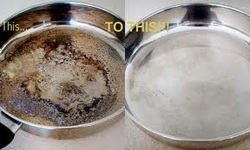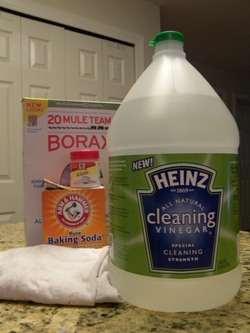
Good news to any of you that have gone through the pains of trying to clean a burnt pan. The solution that I'll be sharing today will half the scrubbing time while still allowing you to get a super clean pan. The best part is that the solution is chemical free and cheap!
What You'll Need:
Instructions
Your pan should be looking like new now. While you can clean the pan with just baking soda, water and scour, following the above instructions makes it much quicker and easier to clean your pan!
What You'll Need:
- 1 cup of vinegar
- 2 tablespoons of baking soda
- A scourer
Instructions
- Fill the bottom of the pan with a layer of water and then add a cup of vinegar.
- Bring the pan to the boil.
- Remove from heat, add the baking soda and watch the fizz!
- Empty the pan and scour as normal, if necessary add an extra bit of dry baking soda.
Your pan should be looking like new now. While you can clean the pan with just baking soda, water and scour, following the above instructions makes it much quicker and easier to clean your pan!


 RSS Feed
RSS Feed